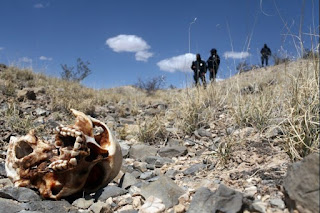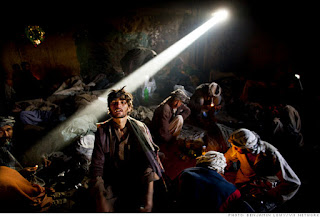De-Criminalize this thing.The Drug War and the American Constitution: "The drug war and the laws that prohibit the private consumption of certain drugs are un-Constitutional"It was necessary to amend the Constitution in order to prohibit the drug alcohol? How is it possible to prohibit other drugs without going through the formal amendment process? “We are not against those who are distributing drugs.That’s a way for them to earn a living. Let anyone who.wants to poison themselves with drugs do it. De-Criminalize this thing. Save the lives of baby's. Everywhere.
Let us begin the wave of gentrification: redevelopment; refurbishment; renovation restoration; improvement; transformation; urban renewal; not neglect
that decimates black communities everywhere. Let us make a start at rolling back the prison state, granting full citizenship rights to and ending discrimination against former prisoners. We must cease the incarceration of juveniles with adults. We must also end the futile, hypocritical and racist war on drugs.
We must now punish Wall Street for having crashed the economy, and keep them from repeating their crime in the near future --- Why should it be that homeowners, credit card debtors and student borrowers deserve to drown while republicans insist that it is the people who should not receive entitlements while the banks
engorge, like fat pigs, without a care, on we the taxpayer
funding.
Libya favoured more talks not a rush to military action in Mali: Prime Minister Zeidan | Libya Herald: "“There are powers that don’t want stability involved in white slavery, drugs smuggling, arms smuggling, money laundering and others who want North Africa to be a theatre of instability”."
'via Blog this'
ALGEBRA OUR WAY TODAY http://bookstore.xlibris.com/Products/SKU-0112143017/Baby-Algebra-For-Baby-and-You.aspx
Introducing baby to algebra as early as the baby shower via algebra themed baby beginnings, such as:mobiles, room plaques, pacifiers and other baby algebra paraphernalia,we inundate baby with the message that algebra is important to baby and family tradition.Baby algebra uses pictures and key words to help Baby to generalize and grasp algebra concepts. Therefore we can think our way through the stepping stones called tests. Colors and images react . Colors with one side of the brain, images with the other side of the brain, together create and complete the learning process inherent at birth . WALLA! Baby does algebra.
 |
Colombia police seize nearly 4 tons of cocaine destined for Los Zetas in Mexico |
Libya favoured more talks not a rush to military action in Mali: Prime Minister Zeidan | Libya Herald: "“There are powers that don’t want stability involved in white slavery, drugs smuggling, arms smuggling, money laundering and others who want North Africa to be a theatre of instability”."
 |
12/10/2012 Fancy and vain, and ugly and sad HSBC to pay $1.9 billion for money laundering. December 2012 |
Tripoli, 19 January:
Libya’s Prime Minister Ali Zeidan revealed last Wednesday in his press conference, held immediately upon his return from his official visit to Qatar, that he was in favour of more talks on resolving the Mali issue rather than rushing into action.
He denied reports in the media that Libya had supported French military action in Mali.
Zeidan did not go out of his way to condemn French Military action, but he was frank in admitting he had no input in the decision.
“It is not in our hands”, he admitted. “It is in the hands of the international community. We did not support the decision to use force”.
Zeidan then went on to frankly admit that he had “heard of it after it had started through the media”.
However, he went on to confirm that he was united with his Maghreb neighbours in taking actions to resist terrorist and criminal cross border activities with as much reduction of blood-letting as is possible.
Zeidan then went on to say that there were “no terrorist groups in Southern Libya”. Moreover, and in what seemed to contradict his statement that Libya knew nothing in advance of the French action in Mali, Zeidan said that Libya had “anticipated French action in Mali” and as a result had met with neighbouring countries in Ghadames to agree to take various actions.
When asked by journalists whether Libya would help France logistically if asked, Zeidan would not commit himself and replied “when I am asked I will reply to the question”.
Zeidan added that Libya will resist attempts to enter its territory illegally.
When asked who he thought was behind the various acts of terrorism in Libya, Zeidan would not specifically name any one.
However he said that “There are powers that don’t want stability involved in white slavery, drugs smuggling, arms smuggling, money laundering and others who want North Africa to be a theatre of instability”.
The Friday of Saving Benghazi: A Flash-Forward to a Civic State?
In the protest of “Jumat Enqath Benghazi” (the Friday of Saving Benghazi) on September 21, 2012, tens of thousands of Libyans staged an anti-militia protest in Benghazi. The protesters took matters into their own hands, and successfully disbanded some religiously affiliated brigades amongst whom were Rafallah Sahati and Ansar AlShari’a. The latter is said to be an Al Qaida affiliated group, and is also suspected of the September 11, 2012 attack on the U.S. consulate in Benghazi that killed the U.S. Ambassador to Libya, Christopher Stevens. To date, the Friday of Saving Benghazi has been the most significant uprising in Libya since the end of the revolution that toppled the Gaddafi regime.
Interestingly the Libyan masses only went against the brigades with religious orientation. This makes one flashback to the 1789 French Revolution that pushed for the dechristianization of France. Could Libya be turning into a civic state, i.e. a non- theocratic regime that is not controlled by clergy?
Mosques are not politically dominant in Libya in ways similar to that of the institution of the Church in France before 1789. However, a mosque is found at every corner of every street of every city in Libya. A mosque is the assembling place of residents of the same neighborhood. Most vital decisions during the revolution were taken in mosques. Also, these decisions were frequently taken by or after consultations with the leaders of prayers, i.e., the sheikhs.
Back to the Saving Benghazi protest as already noted, the people of Benghazi went only against the religiously affiliated brigades, even though the protests declared demand was the disbandment of all militias. However, this is not necessarily a flash-forward of the de-islamization of Libyan politics in the future. The Benghazi people targeted extremists and not religion itself; Libyans say they desire moderate Islam and are against extremism.
Although the press in Libya, during and after the revolution, has achieved significant political awareness, issues like secularism, liberalism and democracy are still relatively new to Libya. Such concepts have not been totally assimilated into the Libyan public opinion. Libyans still have yet to realize that there are other ideologies they reject other than the socialist anarchist ideology of Gaddafi.
The Saving Benghazi Protest
is very significant in the post-revolution sequence of events. Obviously, the Benghazi people had felt that brigades with religious affiliation were a sign of slowing down the democratic process. They saw that the Islamic militias took on the veil of Islam to exercise power. Perhaps the protest foreshadows the emergence of a movement against religious extremism in Libyan politics.
Religion may never disappear from Libyan society. However, the dominance of religion in politics will most probably be diminished sometime in the future as shown by the Saving Benghazi Protest. Power and ideology tend to corrupt each other as was the case with the Church in the middle ages, and communism and Nazism in the 20th century.
France went through three revolutions, and many uprisings in between before it finally reformed itself as a nation. Yet, in the longer run, the ideas that surfaced during France’s three revolutions did not seep into the culture right away. Some of the revolutionary reforms were eventually realized only about eighty years later in France.
A change in the political system in Libya may take a very long time, but the Saving Benghazi Protest at the very least shows that Libya may be moving towards a moderate political system.
'via Blog this'
ALGEBRA OUR WAY TODAY http://bookstore.xlibris.com/Products/SKU-0112143017/Baby-Algebra-For-Baby-and-You.aspx
Introducing baby to algebra as early as the baby shower via algebra themed baby beginnings, such as:mobiles, room plaques, pacifiers and other baby algebra paraphernalia,we inundate baby with the message that algebra is important to baby and family tradition.Baby algebra uses pictures and key words to help Baby to generalize and grasp algebra concepts. Therefore we can think our way through the stepping stones called tests. Colors and images react . Colors with one side of the brain, images with the other side of the brain, together create and complete the learning process inherent at birth . WALLA! Baby does algebra.







No comments:
Post a Comment